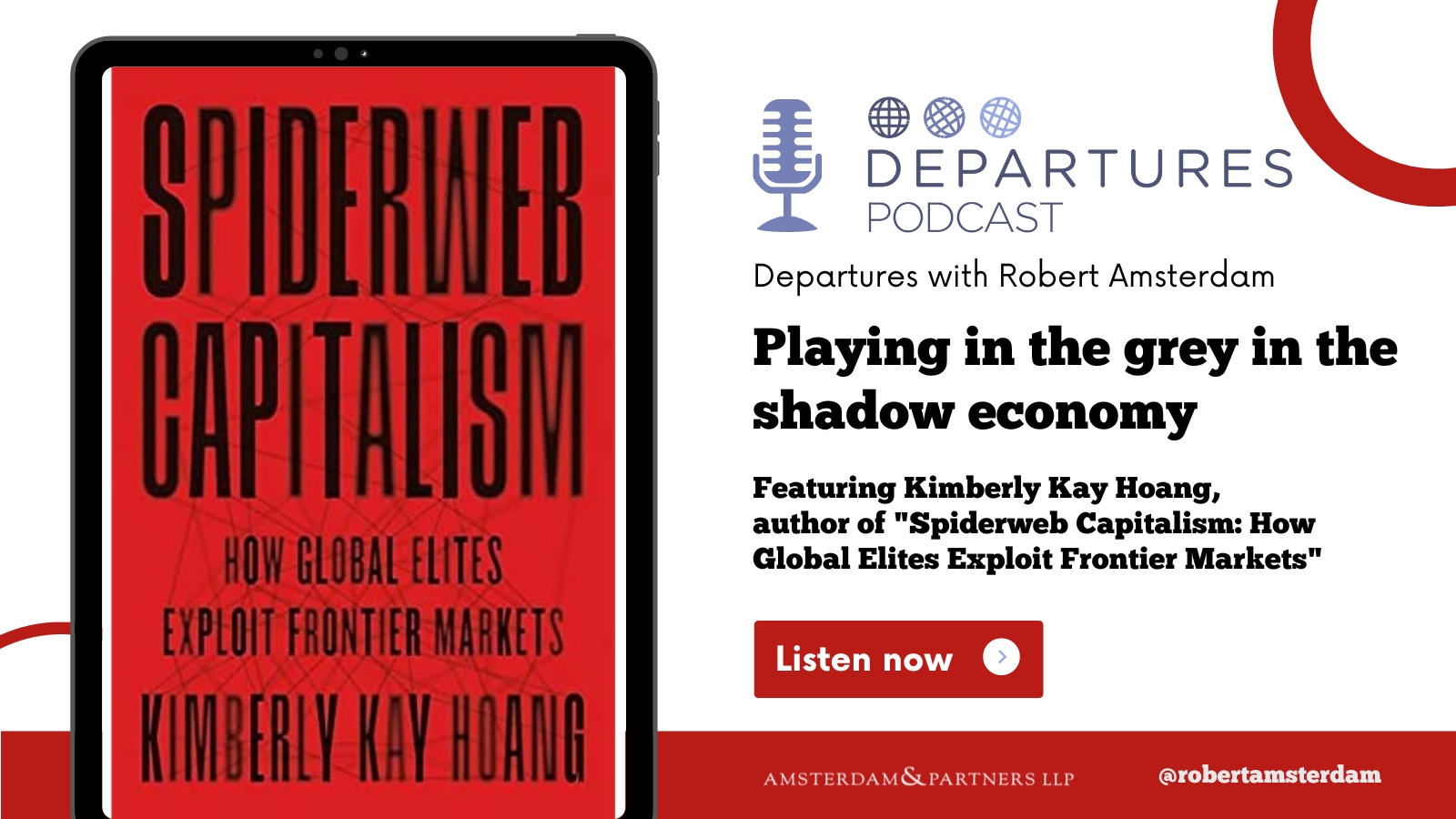Departures Podcast featuring Kimberly Kay Hoang, author of ‘Spiderweb Capitalism: How Global Elites Exploit Frontier Markets’

In international finance, the difference between what is legal and normal and what is criminal and corrupt is often unclear, a disparity made worse by an overlapping series of laws and regulations which in some cases can put U.S. competition at a disadvantage.
These networks of illicit finance, shell corporations, and offshore structures used by global elites to create, move, and conceal vast amounts of wealth is explored in great detail by Prof. Kimberly Kay Hoang in her new book, “Spiderweb Capitalism: How Global Elites Exploit Frontier Markets.”
Hoang’s investigation, which involved some 350,000 miles of travel and dozens of field interviews with executives and market players, sheds light on this secretive and poorly understood corner of the global economy.
In her discussion with Robert Amsterdam, Hoang explains how shell corporations can be set up to move funds from statelets like Guernsey, to more well known offshore havens like the Cayman Islands, as well as Singapore, Vietnam, Cambodia, Myanmar, and Delaware, among many others.
Her investigaiton brings fresh insights to the shortcomings of laws like the Foreign Corrupt Practices Act (FCPA), which has imposed very high compliance costs on US companies but has done little to halt the activity of other players.











